Swimming is a demanding sport that requires a tailored approach to nutrition to support muscle gain and overall performance. This article explores guide guide muscle gain for swimmers, enhance recovery, and improve their swimming capabilities. By understanding the specific dietary needs and incorporating strategic nutritional practices, swimmers can achieve significant improvements in their performance and endurance.
Key Takeaway
- Understanding macronutrients is crucial for optimizing muscle repair and energy levels.
- Protein plays a vital role in muscle repair post-training, and should be balanced with carbohydrates and fats.
- Hydration is essential, not just for performance but also for muscle recovery and overall health.
- Vitamins and minerals, often overlooked, are critical for muscle function and energy metabolism.
- Practical meal planning and timing of nutrient intake can significantly enhance muscle building and recovery.
Fueling Up: What to Eat to Build Muscle
Understanding Macronutrients
To build muscle effectively, swimmers need a balanced intake of macronutrients: proteins, carbohydrates, and fats. Protein is crucial for muscle repair and growth, while carbohydrates provide the energy needed for your workouts. Fats are essential too, as they help with hormone production and nutrient absorption.
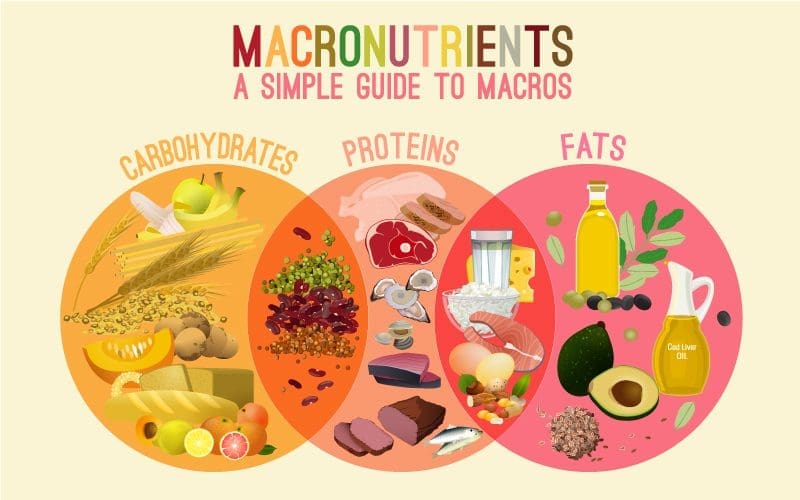
Understanding Macronutrients
Timing Your Meals
Eating the right foods at the right times is key to muscle building. A protein-packed breakfast can kickstart your day, and refueling with carbs after a workout helps restock muscle glycogen. It’s also important to have a balanced meal a few hours before training to ensure sustained energy.
Hydration Essentials
Staying hydrated is non-negotiable. Swimmers should drink water consistently throughout the day and include electrolyte-rich beverages during and after swims to prevent muscle cramps and ensure optimal performance. Remember, hydration affects how well your body functions and recovers, making it a cornerstone of your diet.
The Power of Protein in a Swimmer’s Diet
Best Protein Sources for Muscle Repair
For swimmers, protein isn’t just a part of their diet; it’s a crucial building block for muscle repair and overall performance. High-quality proteins like chicken, fish, and eggs are top picks. These sources not only help to repair the muscles after intense training but also prepare them for future workouts. Incorporating a variety of protein sources ensures a balanced intake of essential amino acids.
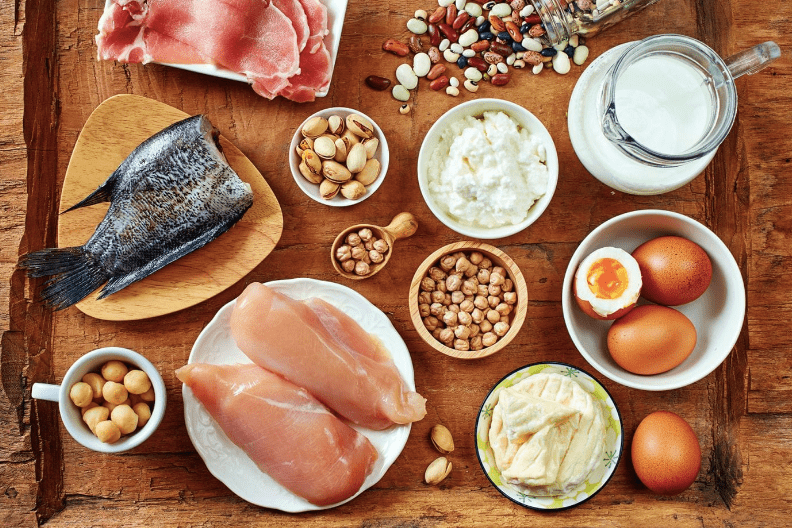
Best Protein Sources for Muscle Repair
Balancing Protein with Other Nutrients
While protein is vital, it’s important to balance it with carbohydrates and fats, which are also essential for swim nutrition. Carbohydrates are particularly crucial as they provide the primary energy source during swimming. Healthy fats like those found in nuts and seeds aid in long-term energy provision and inflammation reduction. A well-rounded diet supports sustained performance and recovery.
Protein Intake Before and After Training
Timing your protein intake can significantly enhance muscle recovery and growth. Swimmers should aim to consume protein-rich foods or supplements within 30 minutes after training to maximize muscle repair. Before workouts, a lighter protein meal can help fuel the session without weighing you down. This strategic approach to protein timing aligns with optimal nutrition strategies for competitive swimmers.
Carbs and Fats: Energy Sources for Swimmers
Why Carbs are Crucial
Carbohydrates are the primary source of fuel for swimmers, essential for powering through those intense swim sessions. They should make up about half of your diet, focusing on complex carbohydrates like whole grains and sweet potatoes for sustained energy.
The Role of Fats in Energy and Recovery
Healthy fats are not just about calories; they play a crucial role in energy and recovery. Include sources like avocados, nuts, and olive oil to support your training and ensure heart health.
Balancing Your Macronutrients
A balanced diet is key for swimmers, with a focus on carbohydrates for energy and proteins for muscle repair. Adjust your intake based on your training intensity and goals, ensuring you’re not just eating well, but eating smart.
Vitamins and Minerals: The Unsung Heroes
Key Vitamins for Swimmers
Swimmers need a variety of vitamins to maintain overall health and support their athletic performance. Vitamins like Vitamin D and C are crucial for bone health and immune function. Foods rich in these vitamins include fruits, vegetables, and lean protein sources.
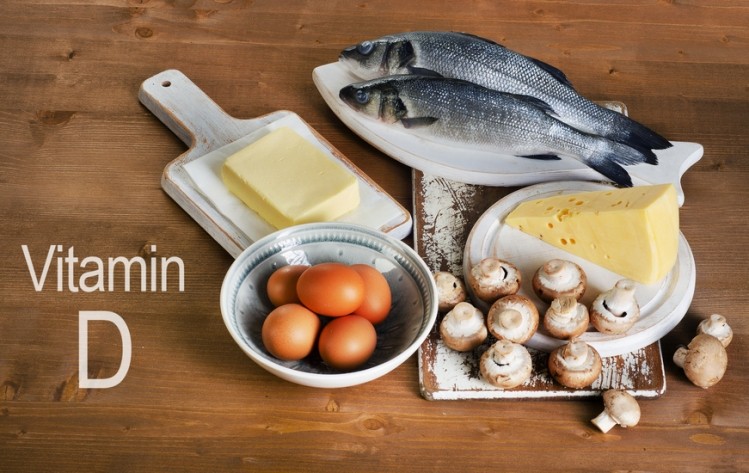
Swimmers need a variety of vitamins to maintain overall health
Essential Minerals for Muscle Function
Minerals such as iron, calcium, and zinc play vital roles in a swimmer’s body. Iron is essential for oxygen transport, calcium is crucial for bone health, and zinc supports muscle repair and immune function. Here’s a quick list of important minerals:
- Iron
- Calcium
- Zinc
How to Incorporate Micronutrients into Your Diet
Incorporating these essential micronutrients into your diet can sometimes be challenging, especially if you’re following a restrictive diet plan. Supplementation might be necessary to prevent deficiencies. Regular blood tests can help monitor vitamin and mineral levels, allowing for adjustments in dietary or supplementation plans as needed.
Practical Meal Planning for Muscle Gain
Sample Meal Plans
Creating a weekly meal plan is crucial for ensuring you hit all your nutritional marks without the daily hassle of deciding what to eat. Here’s a quick peek at a 14-day meal plan tailored for swimmers aiming for muscle gain:
- Day 1:
Breakfast: Scrambled eggs with spinach and tomatoes
Lunch: Grilled chicken salad with mixed greens, avocado, and berries
Dinner: Baked salmon with quinoa and steamed broccoli
- Day 14:
Breakfast: Scrambled eggs with spinach and tomatoes
Lunch: Lentil salad with mixed greens, cherry tomatoes, and cucumber
Dinner: Grilled chicken with brown rice and stir-fried mixed vegetables
Snacks on the Go
Keeping energy levels high between meals is essential. Opt for snacks that are rich in protein and healthy fats to fuel your workouts and aid recovery. Some great options include:
- Greek yogurt with a handful of nuts
- A smoothie with protein powder, banana, and almond milk
- A slice of whole-grain bread with avocado
Pre and Post Workout Meals
The meals you eat before and after training are pivotal for performance and recovery. Pre-workout, aim for a meal that’s moderate in protein and high in complex carbohydrates to ensure a steady energy release. Post-workout, focus on protein and some carbs to aid muscle repair and replenish energy stores. Here’s a simple guideline:
- Pre-workout (about 2 hours before): A banana with a small bowl of oatmeal
- Post-workout: A protein shake with a banana or a chicken breast with sweet potatoes
Remember, the key to effective meal planning is variety and balance. Ensure you’re getting a good mix of macronutrients and micronutrients to support your swimming and strength training goals.
Strength Training: Complementing Your Swimming Regime
Why Strength Training Matters
Strength training isn’t just about bulking up; it’s a crucial part of a swimmer’s regimen to enhance performance and prevent injuries. Incorporating exercises like weightlifting and resistance bands can significantly boost your swim-specific muscles, leading to faster and more powerful strokes.
Exercises for Swimmers
Dryland training exercises such as push-ups, pull-ups, and core workouts are essential for swimmers. These exercises target muscle groups that are extensively used in swimming, helping to build strength and endurance. Additionally, resistance training can further improve muscular power, translating to improved swim times.
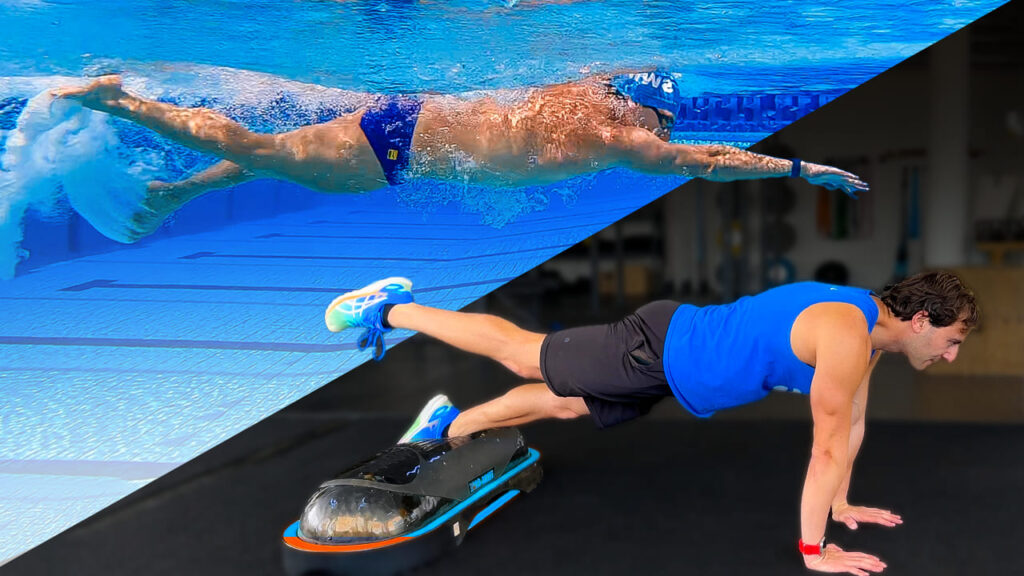
Exercises for swimmers
Balancing Cardio and Strength Training
While focusing on muscle building, it’s also vital to balance strength training with cardiovascular workouts. This combination helps improve overall swimming performance by increasing power, endurance, and speed. Remember, balancing these training types is key to optimizing your swim training and achieving peak performance.
Navigating Challenges: Injury Prevention and Recovery
Common Injuries in Swimmers
Swimmers are prone to a variety of injuries, particularly in the shoulders, knees, and lower back. Incorporating proper form and technique into your training is crucial to minimize these risks. Regular stretching and using the correct resistance levels can also prevent overuse injuries.
Nutrition for Injury Prevention
A balanced diet rich in nutrients is essential for injury prevention. Consider supplementing with multivitamins to ensure you’re getting all the necessary nutrients. Regular health screenings can help you adjust your diet or supplements to better support your body’s needs.
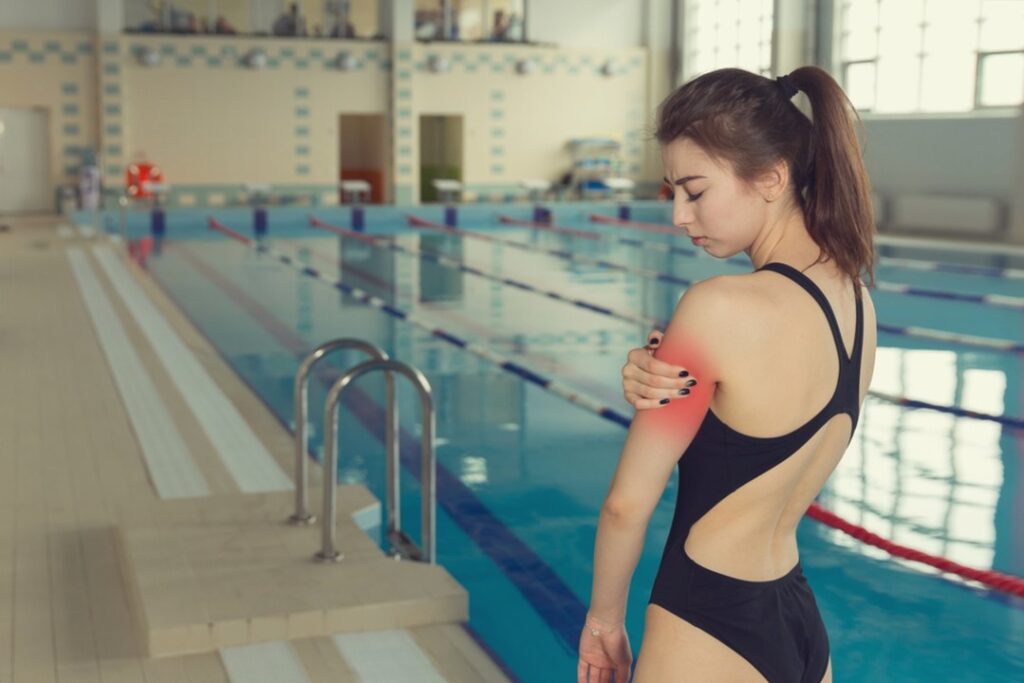
A balanced diet rich in nutrients is essential for injury prevention
Recovery Foods and Techniques
After a tough swim, your body needs to refuel and repair. Carbohydrates are crucial for refueling your energy stores, while proteins support muscle repair. Don’t forget to rehydrate and consider using foam rolling or massage to reduce muscle soreness and promote recovery.
At Swim Time Log, we understand the importance of injury prevention and effective recovery strategies in the world of swimming. Whether you’re dealing with swimmer’s shoulder or looking for the best recovery techniques, our comprehensive guide on ‘Injury Prevention and Recovery’ offers valuable insights and practical tips. Dive into our resources and ensure your swimming journey is safe and successful. Visit our website to learn more and stay ahead in your swimming endeavors.
Wrapping It Up
As we’ve explored, tailoring your diet to enhance muscle gain for swimming isn’t just about loading up on protein; it’s about striking the right balance of nutrients to fuel your body and aid recovery. Remember, every swimmer is unique, so it’s crucial to adjust your diet based on your specific energy needs and training demands. Don’t forget to hydrate, prioritize whole foods, and consult with a sports dietitian to fine-tune your diet plan. Here’s to making waves in the pool with your newfound strength!
Read more: A Comprehensive Diet Plan To Gain Weight For Swimmers
AUTHOR
Sang Nguyen
Sang Nguyen is a former national swimmer for Vietnam who has transitioned into coaching. With a passion for fostering a healthy swimming community and connecting like-minded individuals,......Read More
BLOG
Maybe You Are Interested
Good Swim Meet Snacks: What to Eat for Optimal Performance
Good nutrition is crucial for swimmers to maintain energy, recover quickly, and perform at their...
Read More...Optimizing Your Performance: The Best Diet for Swimming Training
Optimizing your performance in swimming is not just about rigorous training; it’s equally crucial to...
Read More...Achieve Peak Performance with This Diet Chart for Swimmers
Whether you’re a novice or an expert swimmer, understanding the right diet is crucial for...
Read More...Eating Like a Champion: Exploring the Diet of Michael Phelps
Michael Phelps, renowned for his Olympic triumphs, has a diet as extraordinary as his swimming...
Read More...Muscle Gain for Swimmers: Tailoring Your Diet for Strength
Swimming is a demanding sport that requires a tailored approach to nutrition to support muscle...
Read More...A Comprehensive Diet Plan To Gain Weight For Swimmers
Swimming is a demanding sport that requires meticulous attention to nutritional needs to optimize performance,...
Read More...